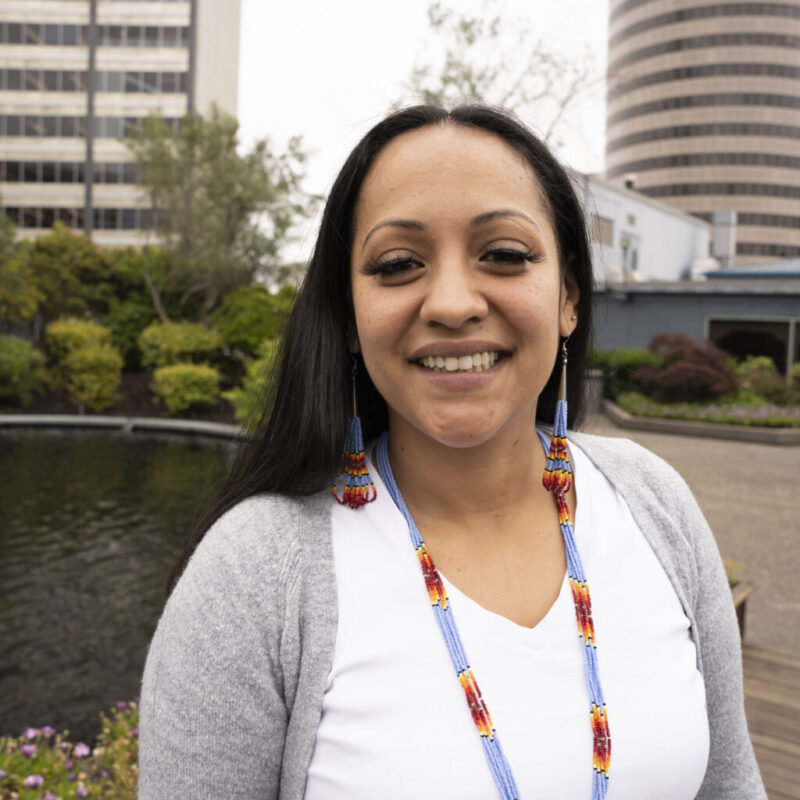Cal Wellness is proud to partner with Young Women’s Freedom Center and Vera Institute of Justice in their efforts to transform the youth justice system through a gender-responsive lens that prioritizes young women, girls and gender-expansive youth of color. Recently, YWFC and Vera released a landmark report that provides a roadmap for ending girls’ incarceration across California. This is the second essay in a series of guest blogs profiling important work happening across the state to advance wellness.
In 2024, the U.S. still leads the world in incarceration. We lock up more people per capita — even children — than any other country. On any given day, nearly 60,000 minors are held in juvenile jails and prisons across the country and the experiences of girls in the system are often overlooked. Now, a new report from Young Women’s Freedom Center (YWFC) and the Vera Institute of Justice (Vera) shows that permanently ending the incarceration of girls and transgender youth is possible in California.
Over the last decade, girls’ arrests in California have fallen by 81% and girls’ detentions by 72%. The report makes clear, by investing in gender-sensitive, community-based solutions, California can confront the forces funneling girls into juvenile jails and prisons and ultimately get to zero incarcerations.
This report is two years in the making and adds to a well-established body of evidence that incarceration harms young people who are already experiencing great hardship. In consultation with youth and community groups, Vera reviewed more than 80 datasets to assess how girls’ incarceration varies in counties across California. To connect real-life experiences into the report, YWFC conducted 50 interviews with girls and gender-expansive youth (including non-binary, transgender and gender non-conforming young people) to ensure that the report reflects the real-life experiences of those the system has affected. This approach allowed us to develop a robust qualitative analysis centering youth voices.
One bad day or one life-altering choice should not dictate the remainder of a young person’s life. Every young person deserves the opportunity to thrive and reach their full potential. In the U.S., girls of color and gender-expansive youth are overrepresented at every point of contact with the legal system. In California, Latinx youth make up the majority of girls’ admissions. Black girls make up 24% of all girls in custody even though they constitute only 8% of the population. Additionally, more than half of youth in girls’ juvenile justice facilities identify as lesbian, bisexual, questioning, gender-nonconforming or transgender. Ending the incarceration of girls and all youth is not only the smart thing to do, but also absolutely necessary to achieve racial and social justice.
California has the opportunity to end girls’ incarceration by building on successful work already happening in Santa Clara, Alameda and San Francisco counties. Those counties are finding success due to the tireless efforts of community activists, advocates and formerly incarcerated women. Local leaders know that incarcerating youth causes more problems than it solves and exposes youth to increased trauma, bars them from job opportunities and creates barriers to educational opportunities.
It is important to understand that many of the girls and gender-expansive youth currently in detention are survivors of violence. These young people continue to share that they need support meeting their basic needs and a space where they can heal. However, you can’t get well in a jail cell, particularly when sexual abuse is a consistent problem in women’s detention centers, according to a recent report mandated by the California State Legislature.
That’s why the YWFC-Vera report recommends an investment in community-led solutions. Programs like YWFC’s emphasize rehabilitation over incarceration, focus on the autonomy and agency of girls and gender-expansive youth, and give them tools they can use to change their lives for the better. Programs like these cost far less than the average $500,000 per year, per youth price tag for juvenile detention centers. But although these programs at YWFC are life-changing, they remain the exception rather than the norm.
Compared to detention centers and probation offices, community responses bring a deeper understanding of what youth need to survive poverty today, and that’s why these programs often have higher success rates. Girls and gender-expansive youth who complete YWFC programs are up to 85% less likely to be reincarcerated and up to 90% more likely to meet their employment and education goals. YWFC is investing in innovative housing solutions, working to get their foster care license and raising money to buy a building — because insecure housing is shown to be one of the biggest predictors of who ends up behind bars. YWFC wants to offer stable housing to girls and youth who, upon release from juvenile facilities, have nowhere to go.
In 2022, 6,426 girls under 18 were arrested and 1,364 placed in detention facilities here in California. Now, with proven solutions and new programs from YWFC, we have the opportunity to close girls’ detention facilities once and for all. California has long been a model in showing how we can cut incarceration, reunite families and stop using incarceration as a solution for people struggling with mental illness, addiction or trauma. Now that we have a roadmap for realizing these solutions for girls, it is time to fast-track ending girls' incarceration.


